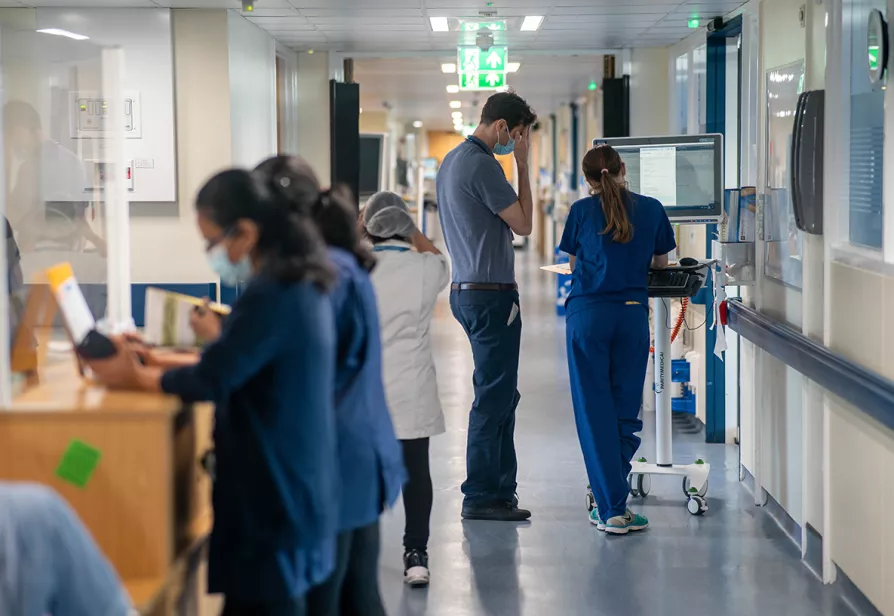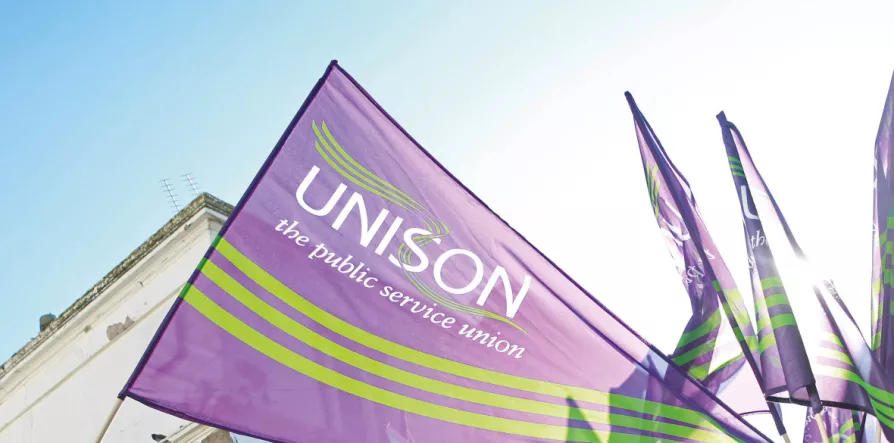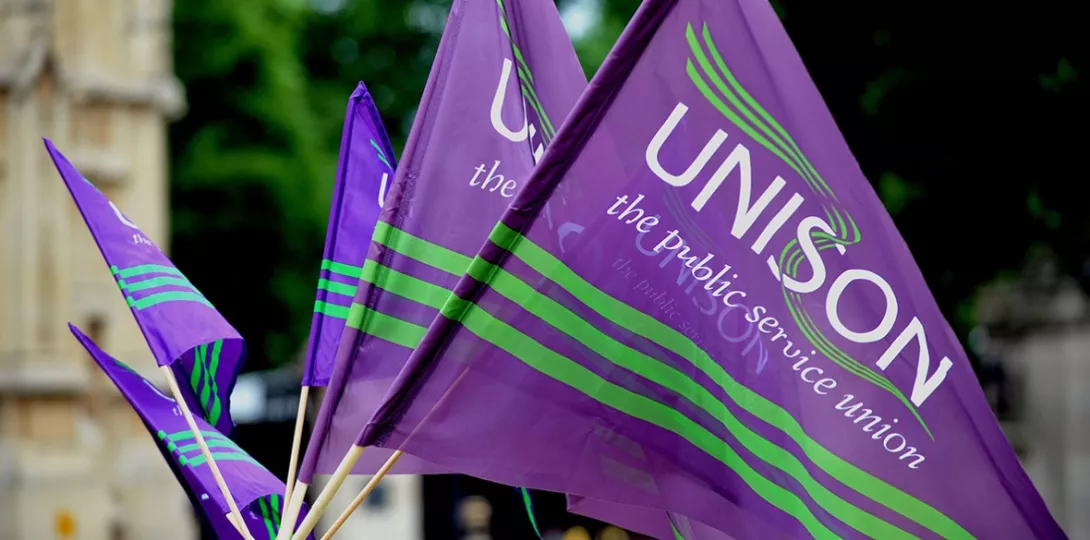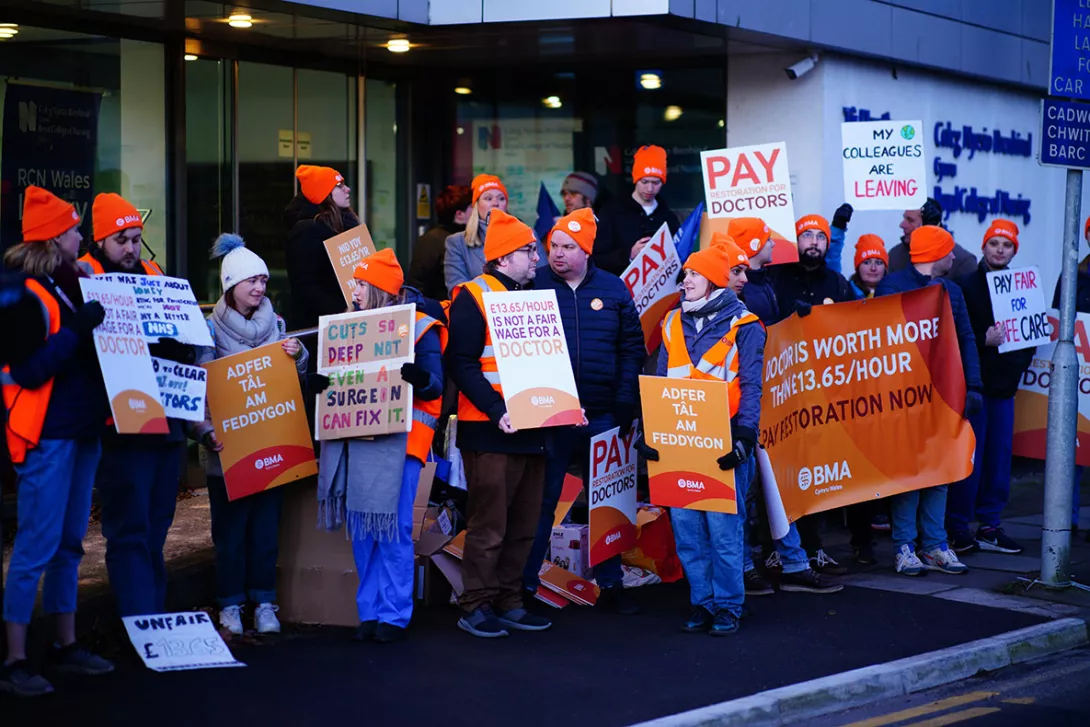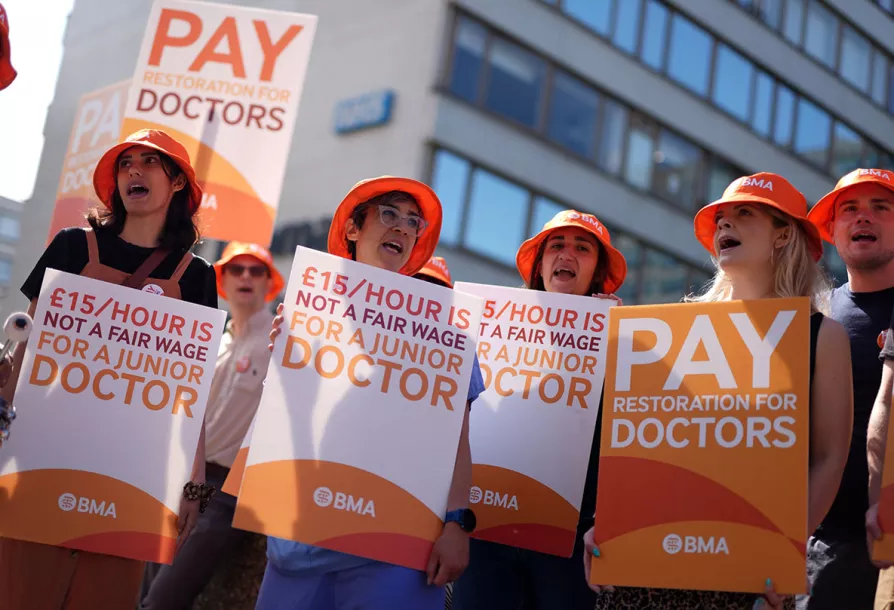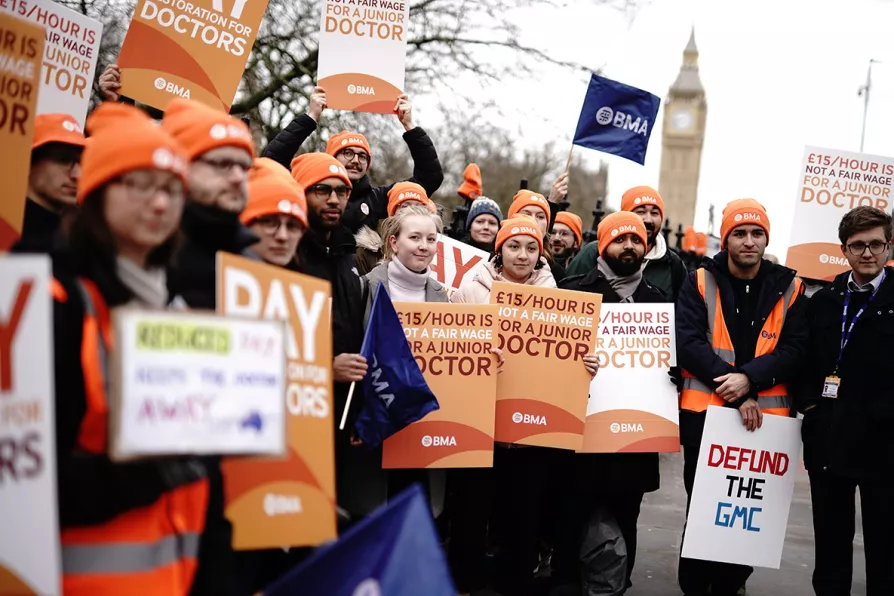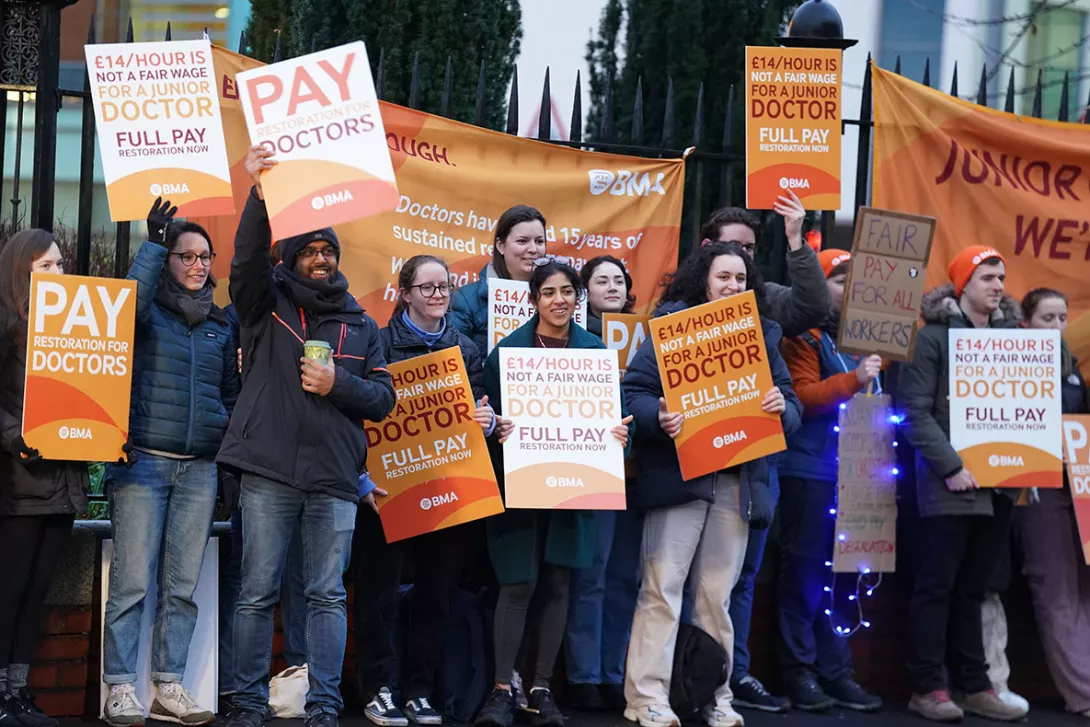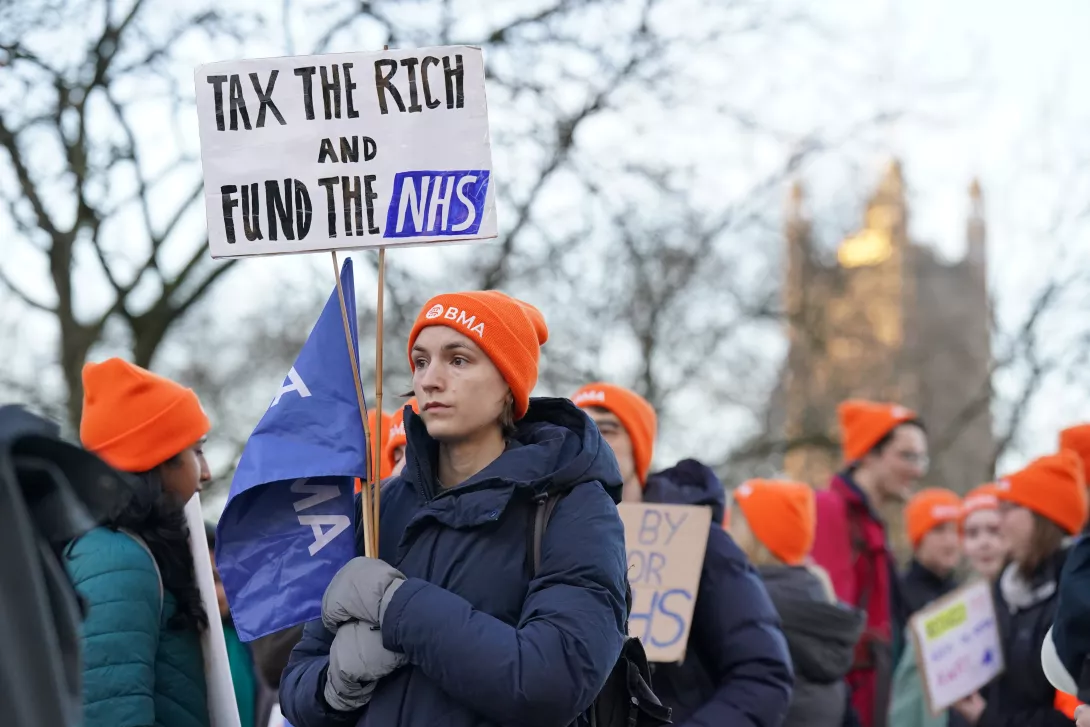
JUNIOR doctors held the line today as an NHS leader hinted that ministers may blink first under increasing pressure from the British Medical Association’s (BMA) unprecedented six-day strike.
As well-wishers brought tea and cake to medics picketing up and down the country, union leaders’ carrot and stick calls for “a journey towards restoration” of their pay appeared to be forcing government back to the negotiating table.
Matthew Taylor, chief executive of the NHS Confederation which represents NHS Trusts, told Radio 4’s the World at One that he thought that there is “the basis now for progress” towards a resolution of the dispute.
He said that talks could and should resume by the afternoon after Dr Vivek Trivedi, co-chair of the BMA’s junior doctors committee, repeated that they weren’t asking for an immediate pay increase from £15 to £21 per hour, which would take doctors to 2008 levels of pay but the government claims is unaffordable.
Dr Trivedi also warned ministers that any delaying tactics could result in further action, as the government maintained that it would not negotiate with the BMA while the strike is taking place.
“As soon as our strike action finishes we will be asking the government to get back round the table, which as we’ve seen from what they have been saying so far, they should be very willing to do very rapidly,” he told the Today programme.
“If the government stall, or they don’t come to the table, or they make excuses, or they try to push things down the line without any clear reason as to why that is happening, then we will be led by our members.
“In the past when those kinds of actions have been displayed by the government, our members have wanted us to call for further strike action. I hope that we don’t have to go there but I can’t rule it out.”
The strike was called after ministers and the BMA’s five weeks of talks last year broke down.
Medics insisted that Health Secretary Victoria Atkins had “pushed” them out of the negotiation room.
Speaking from a picket line outside St Thomas’s Hospital in London, Dr Robert Laurenson, co-chair of the BMA’s junior doctors committee, said the strikes were necessary because they are “the only thing that the government understands with regards to being able to work with a workforce.”








